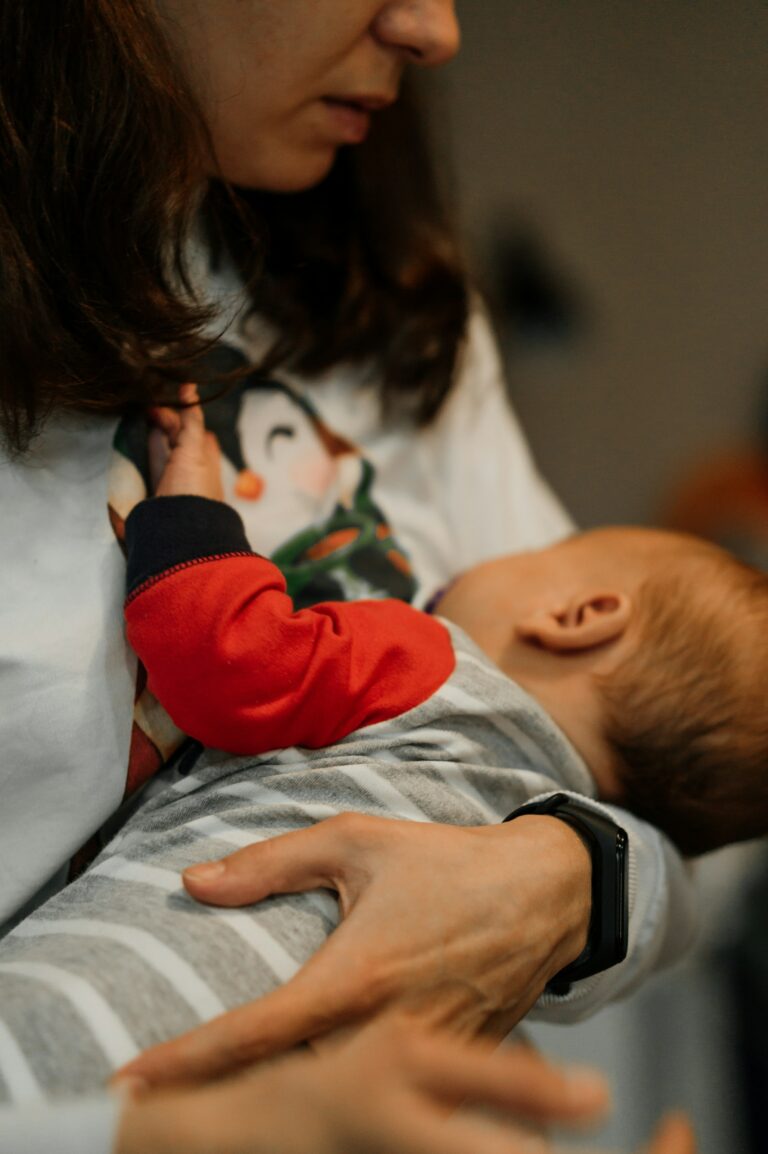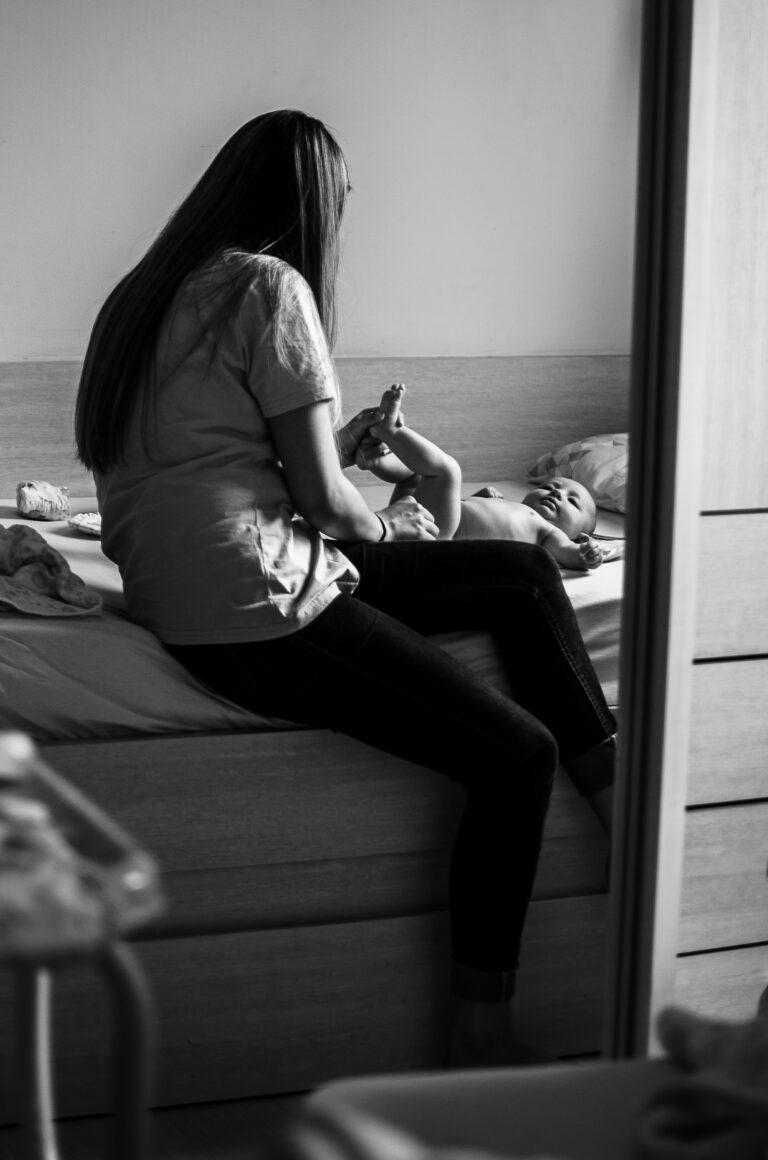Parenthood, with its whirlwind of new emotions, sleepless nights, and shifting family rhythms, is often described as a time of both immense joy and profound challenge. Yet when days that are supposed to be filled with bonding and discovery are instead weighed down by persistent sadness, overwhelming anxiety, or a numb kind of exhaustion, many parents begin to question: is this normal? Is it something more? Postpartum depression is a term that surfaces frequently in conversations about life after childbirth, and for good reason—it shakes up daily existence, distorts self-image, and disrupts the crucial connection between parent and baby. You might be worrying about your own mood swings or noticing changes in a partner’s behavior. Let’s untangle what this condition means, why it happens, how to spot it early, and above all—what helps. Knowing the facts, busting the taboos, and learning to seek the right support can transform not only recovery, but family life itself.
What Is Postpartum Depression? Distinguishing the Shadows from the Blues
Postpartum depression is not just a fleeting feeling of being overwhelmed—it’s a complex, treatable mental health condition that can affect mothers, fathers, and adoptive parents alike. Unlike the milder “baby blues,” which pass in one or two weeks and cause episodes of tearfulness, irritability, or restlessness, postpartum depression lingers and deepens. Think of it as a persistent fog of emotional heaviness: sadness, fatigue, and inexplicable anxiety that refuse to lift, even with rest, reassurance, or the passing of time.
Clinically speaking, postpartum depression falls under the umbrella of “perinatal mood and anxiety disorders.” Symptoms strike anytime during pregnancy or within the first twelve months following birth. The numbers are telling: nearly one in five mothers worldwide will experience it to some degree, and many partners also report similar symptoms.
Common questions include: “Is this just exhaustion? Am I failing my baby?” These doubts are fueled by symptoms such as intense mood swings, withdrawal from loved ones, difficulty bonding, disrupted sleep (not just from night feedings!), and relentless feelings of guilt or hopelessness. These aren’t the usual ups and downs—they can affect decision-making, basic self-care, and the nurturing relationship with the baby.
Recognizing the difference between baby blues and postpartum depression (duration, severity, impact) sets the stage for effective help. When symptoms persist longer than two weeks, or make daily living unbearable, consultation with healthcare professionals becomes essential.
Why Does Postpartum Depression Happen? Unraveling Risk and Root Causes
What triggers postpartum depression? Science underscores a blend of biological, genetic, psychological, and social factors.
- Hormonal fluctuations: After delivery, hormone levels like estrogen and progesterone drop sharply. This abrupt change disrupts neurochemical regulation, leading to mood swings and impaired stress response. That’s not all: shifts in thyroid function and reductions in the so-called “bonding hormone,” oxytocin, further contribute to emotional instability.
- Genetic vulnerability: A personal or family history of mood disorders (including depression, bipolar disorder, or even severe premenstrual syndrome) enhances susceptibility. Early-life adversity shapes future resilience, with childhood trauma or negative perceptions of parenting making things even harder.
- Environmental stressors: Social isolation, lack of supportive partners, financial stress, or relationship tensions amplify the risk. Did you know? Sleep deprivation—whether due to baby’s feeding schedule or health complications—is a significant factor in the development of postpartum depression.
- Complicating events: Emergency cesarean sections, traumatic births, or complications like infants requiring care in a neonatal intensive care unit (NICU) are physically and emotionally taxing, increasing the likelihood of mental health issues.
- Cultural influences: Supportive rituals and traditions can cushion the impact, but social stigma or restrictive beliefs sometimes lead parents to suffer in silence.
These factors interact uniquely for every parent, sometimes creating a perfect storm. Notably, some parents—for reasons beyond anyone’s control—experience psychiatric emergencies such as postpartum psychosis (characterized by confusion, hallucinations, or loss of touch with reality), demanding swift interventions.
Identifying Warning Signs and Preventing Escalation
Can warning signs of postpartum depression be detected early? Often, yes. Parents with a known mental health history, recent bereavement, traumatic birth experiences, or severe psychosocial stress should receive attentive monitoring. Similarly, situations like pregnancy denial, health complications in the newborn, or lack of family support warrant proactive care.
Suicide remains among the leading causes of maternal death during the perinatal period—a heavy fact that underscores the importance of timely support. Prevention isn’t just about predicting the unpredictable; it’s about establishing open conversations and vigilant observation, especially in mothers with heightened vulnerability due to age, substance use, or previous mental health crises.
What Does Postpartum Depression Look Like? Recognizing Symptoms and Red Flags
Symptoms extend far beyond low mood or fatigue. They span several domains:
- Emotional: Persistent emptiness, anxiety, irritability, or feeling detached.
- Behavioral: Avoiding social contact, neglecting self-care routines, or struggling to respond to the baby’s cues.
- Physical: Trouble falling or staying asleep (even when the baby sleeps), relentless exhaustion, appetite changes, or unexplained aches.
- Cognitive: Concentration lapses, memory problems, or indecisiveness. Thoughts may spiral into self-criticism or beliefs of inadequacy as a parent.
Warning signs like thoughts of self-harm or harm to the baby represent psychiatric emergencies. Immediate help is vital in such cases—these thoughts are not a testament to character but a signal for urgent care.
The Ripple Effects: How Postpartum Depression Impacts Families
The consequences of untreated postpartum depression spread beyond the individual:
- Parent health: Depletion of both mental and physical reserves, often translating to impaired parenting confidence and burnout.
- Child development: Studies reveal that children of affected parents may face challenges such as difficulties with sleep, feeding, behavior regulation, or even cognitive delays if maternal depression is prolonged and unaddressed.
- Bonding and attachment: Creating a strong emotional bond in early infancy is fundamental for healthy social and emotional development—postpartum depression can undermine this process, with lingering impact.
- Family relationships: Marital or partnership tension, sibling distress, and wider family strain are common, as emotional communication is often disrupted.
- Long-term repercussions: Chronic untreated depression can increase the risk for future episodes and family crisis scenarios, including severe outcomes like suicidal behavior.
Today’s Scientific Insights and New Treatments
Research offers new hope with emerging treatments. The puzzle of postpartum depression involves neuroendocrine changes—disruptions in estrogen, progesterone, allopregnanolone, and neurotransmitters like serotonin. Brain imaging studies connect misfiring in emotional regulation centers with persistent feelings of sadness or irritability.
- Modern therapies: Innovations such as brexanolone (Zulresso, an intravenous therapy) and zuranolone (an oral alternative) operate through the GABA-A receptor, targeting severe symptoms swiftly for eligible patients.
- Screening advances: Regular psychological screening at prenatal and postnatal appointments (using validated tools like the Edinburgh Postnatal Depression Scale or PHQ-9) heightens early recognition.
- Global awareness: Healthcare teams increasingly include mental health professionals trained specifically in perinatal psychiatry, and telehealth makes follow-up possible even when in-person visits are difficult.
- Inclusive support: Recognition that fathers, partners, and adoptive parents may also go through parallel struggles has shifted care models toward whole-family adaptation.
Worldwide, systematic screening and equitable treatment access remain uneven—addressing these gaps is an ongoing public health priority.
Screening and Barriers: Overcoming Stigma and Obstacles
Routine mental health screening is recommended during pregnancy, shortly after childbirth, and at key milestones in the early months of a child’s life. Quick questionnaires—like the EPDS—open doors for honest conversation, measuring symptoms and guiding referrals to specialists when needed.
Yet, parents often hesitate. Stigma (“What will people think?”), misinformation (“It’s just sleep deprivation, right?”), or cultural silence can delay necessary care. Providers are working to break down these barriers, encouraging open dialogue and normalization, and offering approaches tailored to a parent’s language, background, and comfort level.
Systems of Care: What Support Looks Like Around the World
What does effective support actually look like? Practices and programs differ, but the trend is clear: adaptable, parent-centered, and multidimensional care models work best.
- Mother-and-baby units: Facilities where both can be cared for simultaneously, preserving attachment while ensuring safety and therapy, can be found in select hospitals—especially in the United Kingdom and Australia.
- Mobile perinatal teams: In Canada, psychiatric outreach teams travel to families’ homes, supporting severe cases outside hospital settings and promoting recovery in familiar surroundings.
- Day hospitals: Partial hospitalization allows families to benefit from structured therapy environments without total separation from home life.
- Family resource centers: Local clinics and support hubs offer guidance, group sessions, and observation of the parent-child relationship in an accessible, stigma-free setting.
All these approaches share a focus on early intervention, collaboration across specialties, and flexibility in response to the parent’s evolving needs.
Treatment That Works: From Talking Therapies to Medication
Personalized care—attuned to each parent’s symptoms and life circumstances—remains the gold standard.
- Psychotherapy: Cognitive Behavioral Therapy (CBT) helps reframe unhelpful thoughts; Interpersonal Therapy (IPT) focuses on relationship changes that accompany new parenthood. Both have track records of effectiveness, improving mood and functional capacity.
- Medication: Selective serotonin reuptake inhibitors (SSRIs) like sertraline or escitalopram are considered safe—even while breastfeeding—when prescribed and monitored by a perinatal specialist. Rapid-acting medications such as brexanolone and zuranolone offer further options for severe cases.
- Peer support groups: Online forums, in-person circles, or community networks provide validation, shared wisdom, and motivation—a counterweight to isolation.
- Lifestyle adjustments: Structured routines, nutritious meals, sufficient rest (even in the form of short naps), and accepting help with tasks can shift the trajectory toward recovery.
- Intensive intervention: For dramatic symptoms or postpartum psychosis, hospitalization and specialist interventions (sometimes including electroconvulsive therapy) remain lifesaving options.
Preventing Postpartum Depression: Building Resilience and Support
Prevention strategies start before birth and extend far beyond:
- Early identification of at-risk parents, including screening for prior trauma or mental health history
- Prenatal education around common emotional changes and warning signs
- Involving partners, extended family, or supportive friends in planning and caregiving
- Access to flexible workplace policies and reliable childcare resources
- Consistent follow-up by attentive healthcare teams
- Culturally sensitive interventions that address stigma and respect backgrounds
Stronger families and communities emerge from lifting taboos and sharing responsibilities.
Busting Myths: Setting the Record Straight
Several persistent misconceptions hinder support and recovery:
- Postpartum depression is not simply the “baby blues” (it endures, worsens, and requires intervention)
- It is not exclusive to mothers or specific socioeconomic or cultural groups
- Experiencing postpartum depression is not a parental shortcoming
- Recovery does not require parents to “just push through” alone
Public understanding is shifting, yet the need for clear information and open discussion remains.
Living With and Recovering From Postpartum Depression
Recovery from postpartum depression is not just achievable—it is expected when the right steps are taken. Progress is best measured not by speed but by sustained improvement: more good days, restored routines, moments of genuine enjoyment or connection.
Helpful strategies include:
- Prioritizing physical care: sleep, nutrition, gentle movement
- Accepting help, delegating tasks to family and friends
- Connecting with others, even briefly, to disrupt isolation
- Letting go of unattainable ideals, embracing “good enough” parenting
- Practicing relaxation, mindfulness, or breathing exercises
- Maintaining ongoing dialogue with support networks and healthcare professionals
Family, patience, and clear communication are your strongest allies.
Supporting a Loved One With Postpartum Depression
Family and friends are the first responders. Effective support starts with open ears, not premature solutions:
- Listen and reflect back feelings without rushing to “fix” emotions
- Lend a hand with meals, errands, or night feedings to ease stress
- Encourage healthy habits and regular self-care
- Offer information about therapy, support groups, or online resources
- Use respectful, non-judgmental language that validates emotions
- Raise concerns if warning signs intensify, especially when safety is in question
- Join or help arrange medical appointments, as needed
Consistent encouragement and trust help parents reach out for the professional help that accelerates recovery.
Key Takeaways
- Postpartum depression is a common, treatable medical condition linked to a range of biological, environmental, and psychological mechanisms—not a character flaw.
- Early recognition, honest conversations, and seeking help promptly can vastly improve outcomes for both parent and child.
- Stigma and misinformation still act as significant barriers, but clear education and accessible care models help families access the support they deserve.
- There are proven therapies, effective medications, community programs, and specialized medical care designed to restore wellness and nurture healthy family bonds.
- Reliable resources exist for every parent’s journey—such as the Heloa app for personalized advice and free health questionnaires for children—making it easier than ever to find guidance wherever you are.
Evidence-based information, compassionate healthcare, and supportive networks form the foundation for lasting recovery and thriving family life after postpartum depression. If you have questions or recognize any signs, trust in the resources available and reach out—parenthood deserves to be a time of healing and hope.
Questions Parents Ask
Can postpartum depression affect fathers or partners?
Absolutely, partners and fathers can also experience mood changes and symptoms similar to postpartum depression after the arrival of a baby. While it’s often discussed in relation to mothers, emotional adjustments and psychological challenges can touch anyone who is closely involved in caring for a newborn. Common signs may include feelings of sadness, fatigue, irritability, or withdrawal. If you notice these changes, remember there’s no shame in seeking support—taking care of each member of the family is just as important.
How long does postpartum depression usually last?
The duration of postpartum depression varies greatly from one person to another. For some, symptoms fade within a few weeks or months with appropriate support, rest, and care. For others, recovery may be a longer process, requiring ongoing attention and treatment. What matters most is regular follow-up and open conversations with healthcare professionals. With time, patience, and compassionate assistance, the majority of parents notice a gradual return to well-being.
Are there natural ways to help ease postpartum depression?
Yes, many parents find relief with supportive lifestyle habits alongside professional care. Strategies can include prioritizing rest, gentle physical activity when possible, balanced nutrition, and regular social connection—even short conversations or walks with a friend can make a difference. Mindfulness practices, breathing exercises, and seeking help from loved ones contribute to emotional balance. Every step, even a small one, is valuable—recovery is a path taken day by day, never alone.
Further reading:









